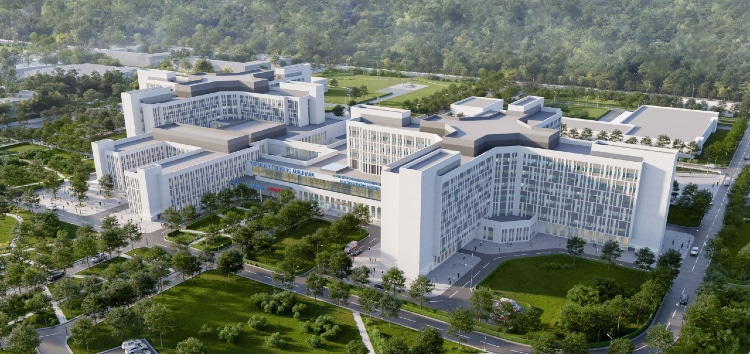Kazakhstan secures €365 million syndicated international loan for landmark healthcare project

Kazakhstan has secured a €365 million (about $396 million) syndicated international loan, organized by the European Bank for Reconstruction and Development (EBRD), to build a 630-bed hospital in Kokshetau. Six institutions, including the Development Bank of Kazakhstan, will participate in this loan arrangement, the EBRD reports.
The syndicate includes the Asian Infrastructure Investment Bank, Deutsche Investitions- und Entwicklungsgesellschaft (a subsidiary of Germany’s state-owned KfW bank), the Islamic Corporation for the Development of the Private Sector, Proparco (a subsidiary of France’s Agence Française de Développement group) and the Development Bank of Kazakhstan. The EBRD alone will allocate €105 million.
The hospital, to be constructed by Turkish company Rönesans Holding, will be developed as part of a public-private partnership. Covering 110,000 square meters of floor size, the facility will serve approximately 730,000 residents in Kokshetau and the Akmola region. Notably, this marks the EBRD’s first loan to Kazakhstan’s healthcare sector.
Under the arrangement, Rönesans Holding will oversee the maintenance of the new facility and manage the hospital’s digital information management system (HIMS). The EBRD has stated that this system will set a new standard for digitalization in Kazakhstan’s healthcare sector. Medical services will be provided by Turar Healthcare, a state-owned non-profit healthcare operator in Kazakhstan.
To date, the EBRD has invested €10 billion across 330 projects in Kazakhstan, primarily to support private enterprise. At a meeting with President Kassym-Jomart Tokayev on Oct. 31, EBRD President Odile Renaud-Basso announced plans to invest an additional €2 billion in Kazakhstan’s economy as part of its green transition initiative. This year alone, the EBRD will allocate $650 million toward the program.

